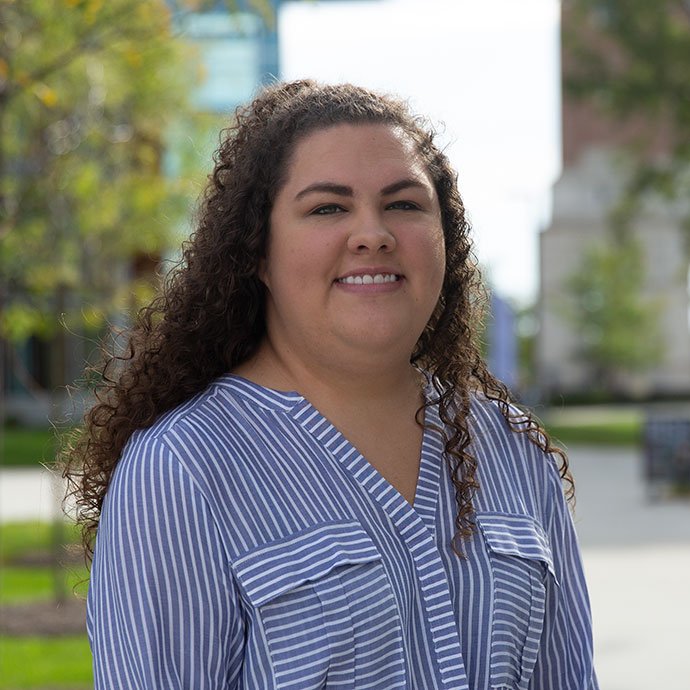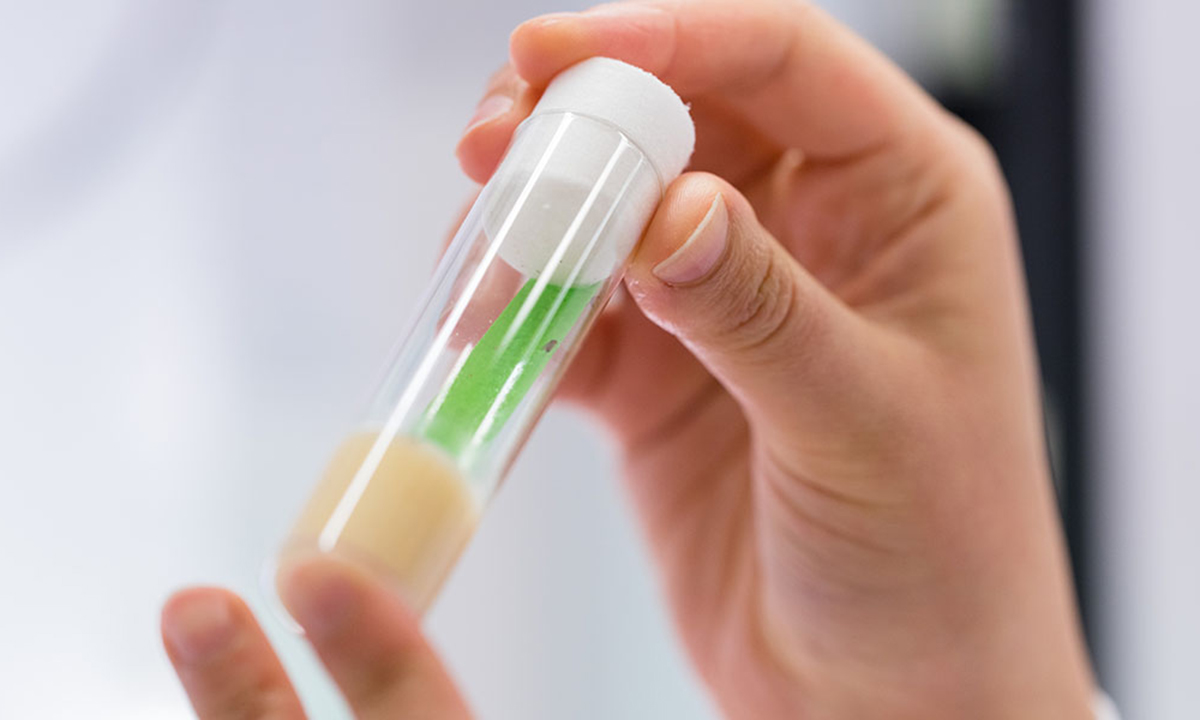- YouTube
- TikTok
Signing In
Undergraduate student shines light on ASL interpreting in health care

Oakland University undergraduate student, RaeAnne Goodwin, found that her curiosity for studying American Sign Language (ASL) opened up a whole new world of experiences.
“I met so many amazing people in my classes, and they were so inspiring,” says Goodwin. “I hadn’t known very much about the deaf and hard-of-hearing community, so it was amazing to learn so much about the community.”
 |
| RaeAnne Goodwin |
Goodwin, a senior pursuing a Bachelor of Science in biology, is one of many undergraduate honors students who actively conducts academic research. With a specialization in human anatomy, Goodwin’s career and research goals focused on health care. But, through studying ASL, she learned about the issues experienced by those deaf and hard-of-hearing when trying to communicate with health care professionals, and decided to intertwine these into her research.
“People have told me about having doctor’s appointments canceled because an ASL interpreter couldn’t be found or didn’t show up on time,” Goodwin says. “Some have even had their doctor try to convince a family member to interpret for them, which can be troubling and awkward when you’re talking about sensitive health issues.”
“I looked into studies on the availability of ASL interpreting services and found that there was little information out there,” she continues. “And there was even less that was specific to Michigan.”
Finding that gap in research solidified Goodwin’s decision – with the working title of her senior thesis “An Exploration of the Availability of Certified Medical American Sign Language Interpreters in Rural v. Urban Areas in the State of Michigan,” Goodwin will look into the availability of certified medical ASL interpreters in health care settings. Specifically, Goodwin strives to identify the differences in the availability of ASL interpreters between urban and rural areas within Michigan, paying special attention to how these affect the waiting times and care of patients. It’s a topic with important real-life implications, and her research will be among the first systematic studies on the topic in Michigan.
Goodwin hopes that through this research, shortages of certified medical ASL interpreters can be acknowledged and steps to possible solutions addressed. While she notes being “a bit nervous” about taking on such an important topic at the undergraduate level, Goodwin is excited about the research opportunity and looking forward to the challenge.


 November 20, 2019
November 20, 2019 By Adam DePollo
By Adam DePollo

